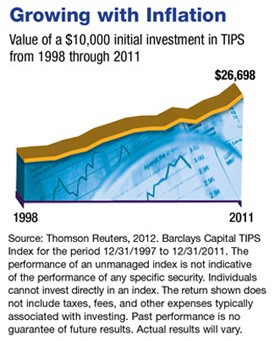Tax-time is a stressful time, especially if you haven’t
prepared for it properly!
The best way to reduce the stress is to have a plan in
place! Each year, after you file your taxes, take a look at what you were
pleased with and what you wish was different. Then, you can come up with a plan
to help improve the following years’s tax returns.
Below, we’ve offered up some simple strategies that can help
you to have a better time on your taxes next year, but if you need more
specific advice, a qualified CPA is always the best person to
turn to.
Tip #1: Think Long-Term
When you file taxes, it’s tempting to just go with whatever
is going to get you the most money the soonest. However, you really need to
consider how your tax decisions today are going to affect you in the future; in
other words, think long-term!
For example, when it comes to passive index investing,
people often put off selling their best portfolio pieces because they don’t
want to pay the capital gains. More often than not, though, capital gains
aside, selling would still be the wisest and most profitable decision over
time. And that phrase- “over time”- is key; no matter what kind of decision
you’re trying to make, choose the option that is going to pay off for the
longest amount of time, even if it costs you money upfront or gives you a
smaller-than-you’d-like amount upfront.
Tip #2: Change Custodians (if necessary)
If your current custodian isn’t working for you, or, if
another custodian is offering you better service and a nice bonus to change
custodians, then by all means, do it! These days, you can typically switch
everything over online, meaning no hurt feelings. Plus, no capital gains taxes
are involved, so it’s really a win-win, providing you research your new
custodian carefully and make sure it’s a good, long-term choice.
Tip #3: Get Help from a Pro
Finally, recognize that no matter how much you know about
taxes and tax law, a professional is going to know more.















 Inflation, which was near zero in 2008 during the depths of the recession, reached almost 3% in 2011.4 If you want to help protect your investment dollars from future inflation, you might consider Treasury Inflation-Protected Securities (TIPS). Not only do TIPS have similar earnings potential to other Treasury bonds, but they are adjusted for inflation. If the CPI rises, the principal value of TIPS increases. If the CPI falls, the principal value falls. TIPS pay interest twice a year, and the investor receives either the original or the inflation-adjusted principal (whichever is greater) when they mature.
Inflation, which was near zero in 2008 during the depths of the recession, reached almost 3% in 2011.4 If you want to help protect your investment dollars from future inflation, you might consider Treasury Inflation-Protected Securities (TIPS). Not only do TIPS have similar earnings potential to other Treasury bonds, but they are adjusted for inflation. If the CPI rises, the principal value of TIPS increases. If the CPI falls, the principal value falls. TIPS pay interest twice a year, and the investor receives either the original or the inflation-adjusted principal (whichever is greater) when they mature.

